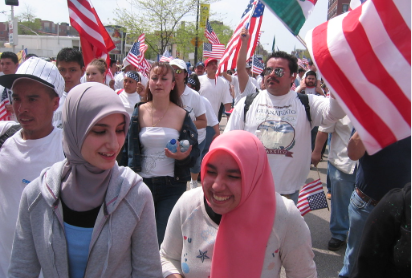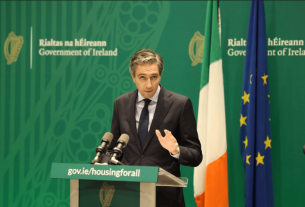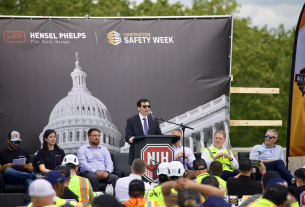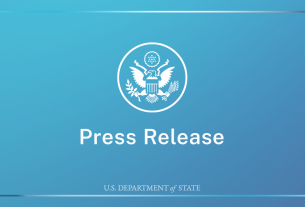In an intriguing turn of events, former President Donald Trump has shifted his campaign focus to Michigan, where he aims to win over Arab and Muslim American voters. This demographic is particularly significant in the state, especially in areas like Dearborn, known for its vibrant Arab community. However, Trump’s history of controversial remarks about immigrants from predominantly Muslim countries complicates this outreach.
A Complex Relationship
Trump’s presidency was marked by divisive rhetoric, including his infamous comments referring to certain countries as “shitholes.” These remarks, which characterized immigrants from those nations as criminals and undesirables, have left a lasting impact on many communities. For Arab and Muslim Americans, these statements have fostered feelings of alienation and mistrust toward the former president.
Despite this rocky past, Trump’s recent rallies in Michigan signal a strategic pivot. His campaign recognizes the importance of winning back voters who feel overlooked and marginalized. As he seeks to broaden his base, engaging with Arab and Muslim American voters has become a key part of his strategy.
The Michigan Landscape
Michigan’s Arab and Muslim American population is one of the largest in the United States. With significant representation in cities like Dearborn, they wield considerable electoral power. Historically, this community has leaned Democratic, particularly in response to the Republican Party’s stance on immigration and civil rights issues.
In recent years, however, some community members have expressed dissatisfaction with the Democratic Party, feeling that their concerns have not been adequately addressed. This creates a potential opening for Trump, as he attempts to reshape his image and appeal to disenchanted voters.
The Strategy
At his rallies, Trump has begun to emphasize themes of economic opportunity, safety, and community engagement. He has pointed to policies that he claims support job growth and stability for families. To connect with Arab and Muslim American voters, he is likely to highlight his administration’s achievements while attempting to mitigate past comments that may have caused offense.
Local leaders and community advocates are closely watching these developments. Some are skeptical about Trump’s sincerity, pointing to his previous remarks as indicative of his true sentiments. Others are cautiously optimistic, hoping that political engagement might lead to better representation of their concerns.
Challenges Ahead
While Trump’s outreach efforts may resonate with some, they face significant challenges. Many in the community remain wary, and a single rally cannot erase years of perceived neglect or hostility. Additionally, the effectiveness of his message will depend on how well he addresses issues such as civil rights, discrimination, and immigration reform—topics that resonate deeply with Arab and Muslim American voters.
Conclusion
Trump’s rallies in Michigan represent a calculated effort to expand his support base by courting Arab and Muslim American voters. Whether this strategy will bear fruit remains to be seen, as the community grapples with a complicated legacy. As the election approaches, the real test will be whether Trump can translate his outreach into genuine support, overcoming past grievances to forge a new political alliance.



